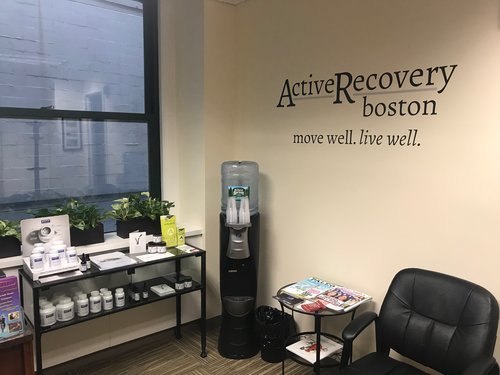Running is more than a sport; it's a lifestyle for many in the bustling heart of Massachusetts. Whether you're preparing to tackle the storied Boston Marathon or simply aiming to improve your personal best, nothing can dampen a runner's spirit quicker than an injury. Dr. Kate Kelly, founder of Active Recover Boston, stands at the forefront of running injury prevention and rehabilitation, weaving the latest in physical therapy with a keen understanding of the marathoner's mentality.
Understanding the Runner's Body: Unveiling Common Running Injuries
Before we lace up, let's familiarize ourselves with the most common adversaries that can sideline us. Running inherently places a significant amount of stress on the body, particularly the lower extremities. Dr. Kate Kelly has identified several key injuries that require a nuanced approach to treatment:
- Runner's Knee (Patellofemoral Pain Syndrome): This painful condition often occurs due to overuse and misalignment of the kneecap.
- IT Band Syndrome: The iliotibial (IT) band can become inflamed, causing sharp pain on the outside of the knee.
- Shin Splints (Medial Tibial Stress Syndrome): This is a generic term often used to describe pain along the inner edge of the shinbone.
- Plantar Fasciitis: Runner's heel pain is typically caused by inflammation of the plantar fascia.
Understanding these injuries is the first step in staying ahead of them. Now, let's explore some prevention strategies.
Fine-Tuning Your Form: Essential Techniques for Injury Prevention
Dr. Kelly advocates for a holistic approach to running injury prevention that includes proper form, cross-training, and regular physical therapy. Here are some essential techniques she recommends:
- Biomechanical Assessment: A professional gait analysis can identify any irregularities in your running form.
- Strength Training: Focusing on the core, hip, and leg muscles can improve stability and help prevent injuries.
- Proper Footwear: The right running shoes, chosen with the help of an expert, can make a significant difference in injury prevention.
- Gradual Training: Increasing mileage or speed too quickly is a recipe for disaster. Dr. Kelly advocates for a slow and steady approach to avoid overuse injuries.
- Rest and Recovery: Adequate rest is just as important as consistent training. It's during this time that our bodies heal and grow stronger.
Integrating the Right Professionals on Your Running Journey
In a city like Boston, renowned for its medical community, runners have access to a vast network of specialists. Navigating this can be daunting, but Dr. Kate Kelly encourages forging a team of professionals who understand your goals and can cater to your individual needs:
- Chiropractors: Skilled chiropractors can provide alignment and soft tissue treatments that complement traditional physical therapy.
- Sports Medicine Physicians: These doctors specialize in the treatment and prevention of sports-related injuries, offering a wealth of knowledge on the subject.
- Nutritionists: Correct nutrition is a cornerstone of overall health and can greatly impact your performance and recovery.
- Mental Health Professionals: Don't overlook the psychological aspect of injury. Experts in the field can provide valuable support through the emotional challenges of rehabilitation.
Honing Your Mindset: The Psychological Element of Running
The mind is a powerful tool in the athlete's arsenal. Dr. Kate Kelly often works with her patients to develop a resilient mindset that can be just as influential as physical preparation:
- Positive Visualization: Athletes who mentally rehearse success are more likely to achieve it. Spend time visualizing your goals and the path to achieving them.
- Goal Setting: Establish both long-term and short-term goals. This can provide you with a roadmap and a sense of accomplishment as you progress.
- Mindful Running: Developing mindfulness during runs can help with form, reduce stress-related injuries, and enhance the joy of running.
Taking Control of Your Running Fate with Data and Analytics
Embrace the power of data to guide your training and recovery. Using state-of-the-art tools and methodologies, Dr. Kelly's approach to running injury prevention is backed by tangible metrics:
- Running Apps and GPS Watches: These tools provide real-time feedback on speed, distance, and often cadence, which can be invaluable for adjusting your training regime.
- Biomechanical Devices: Wearable gadgets that assess your form and impact can provide insights into potential areas for improvement.
- Health Analytics: Monitor your sleep, heart rate variability, and stress levels to better understand your body's readiness for training.
The Wellness Ecosystem: Partnering With Brands and Community Resources
In the bustling streets of Boston, runners are surrounded by a wealth of brands and community resources. From local running clubs to sports equipment stores, these organizations can serve as invaluable partners in your journey:
- Local Running Clubs: Joining a running group provides accountability, support, and a wealth of shared knowledge and experience.
- Community Races and Events: Participating in local events is not just an excellent way to test your performance but also an opportunity to engage with sponsors and like-minded individuals.
- Retail Partnerships: Many stores offer clinics and services that can further support your training, such as shoe fittings and running workshops.
Resurgence Through Injury: Embracing Rehabilitation and Overcoming Setbacks
Injuries are an unfortunate reality for many runners. However, the manner in which we approach rehabilitation and the subsequent comeback can define us as athletes. Dr. Kelly's philosophy emphasizes a comprehensive approach to recovery:
- Early Intervention: The sooner you seek treatment for an injury, the more straightforward the rehabilitation process is likely to be.
- Patient Education: Understanding your injury and the rehabilitation process can help you take an active role in recovery and prevent future occurrences.
- Progressive Training: After you've been cleared for activity, returning to running gradually is key. Structured programs can help you safely get back on your feet.
- Lifestyle Adjustments: Sometimes, simple lifestyle changes can make a significant impact. Whether it's altering your running surface or adjusting your daily workload, these modifications can be critical to long-term health.
Lasting Lessons: Sustaining a Healthy Running Practice in Boston
As we contemplate the knowledge shared by Dr. Kate Kelly, it's evident that running injury prevention is a multifaceted endeavor that extends beyond the physical aspect of the sport. It's about conditioning the entire self - body, mind, and spirit - for the challenges and rewards that running brings.
In the storied city of Boston, rich in its running tradition, we are reminded that the journey of every runner is unique, and the ability to harness our individuality is our greatest strength. By engaging with the robust resources Boston has to offer and maintaining a commitment to our well-being, we can foster a running practice that endures.
Running injuries do not discriminate, but with the right approach, knowledge, and support network, we can minimize their impact on our lives. Dr. Kate Kelly and her team at Active Recover Boston continue to be trailblazers in this domain, ensuring that every Bostonian runner has the opportunity to thrive.
For the passionate runner, there is perhaps no greater joy than crossing that finish line, and with dedication to injury prevention and smart rehabilitation, that joy can be experienced time and time again, resonating with the spirit of Boston's resilient running community.

